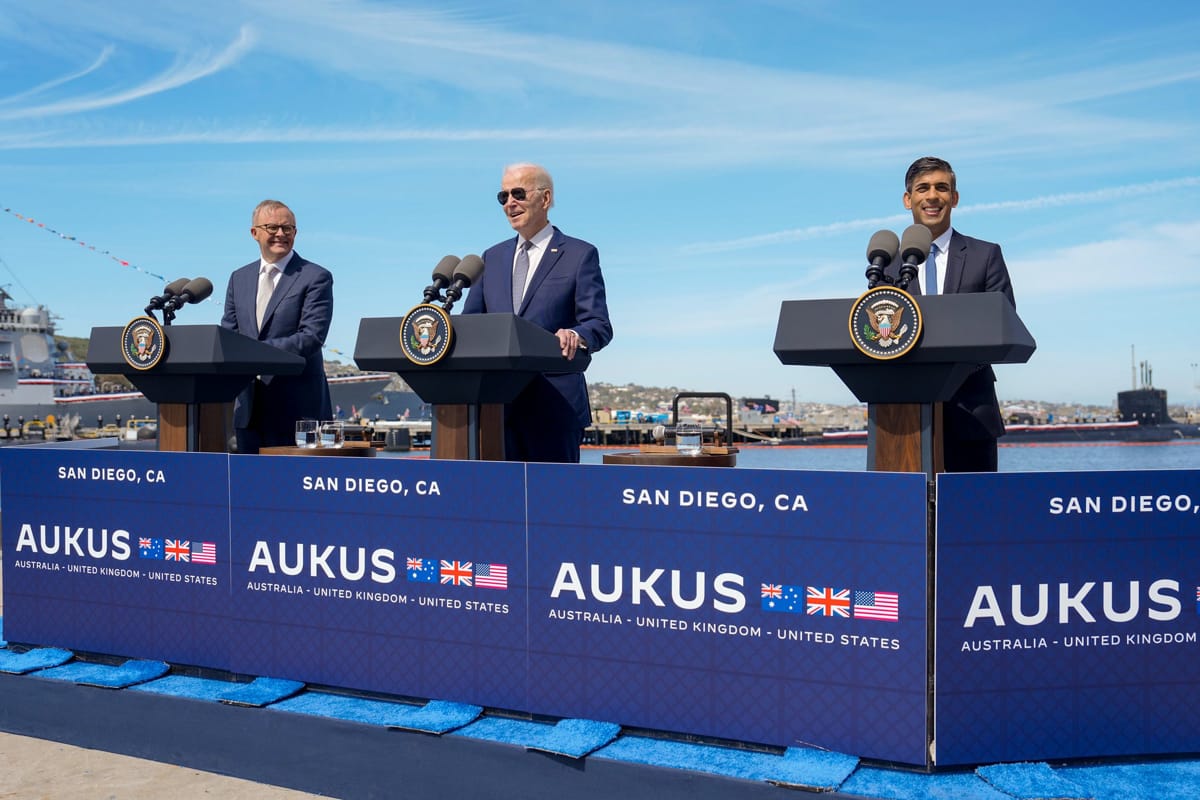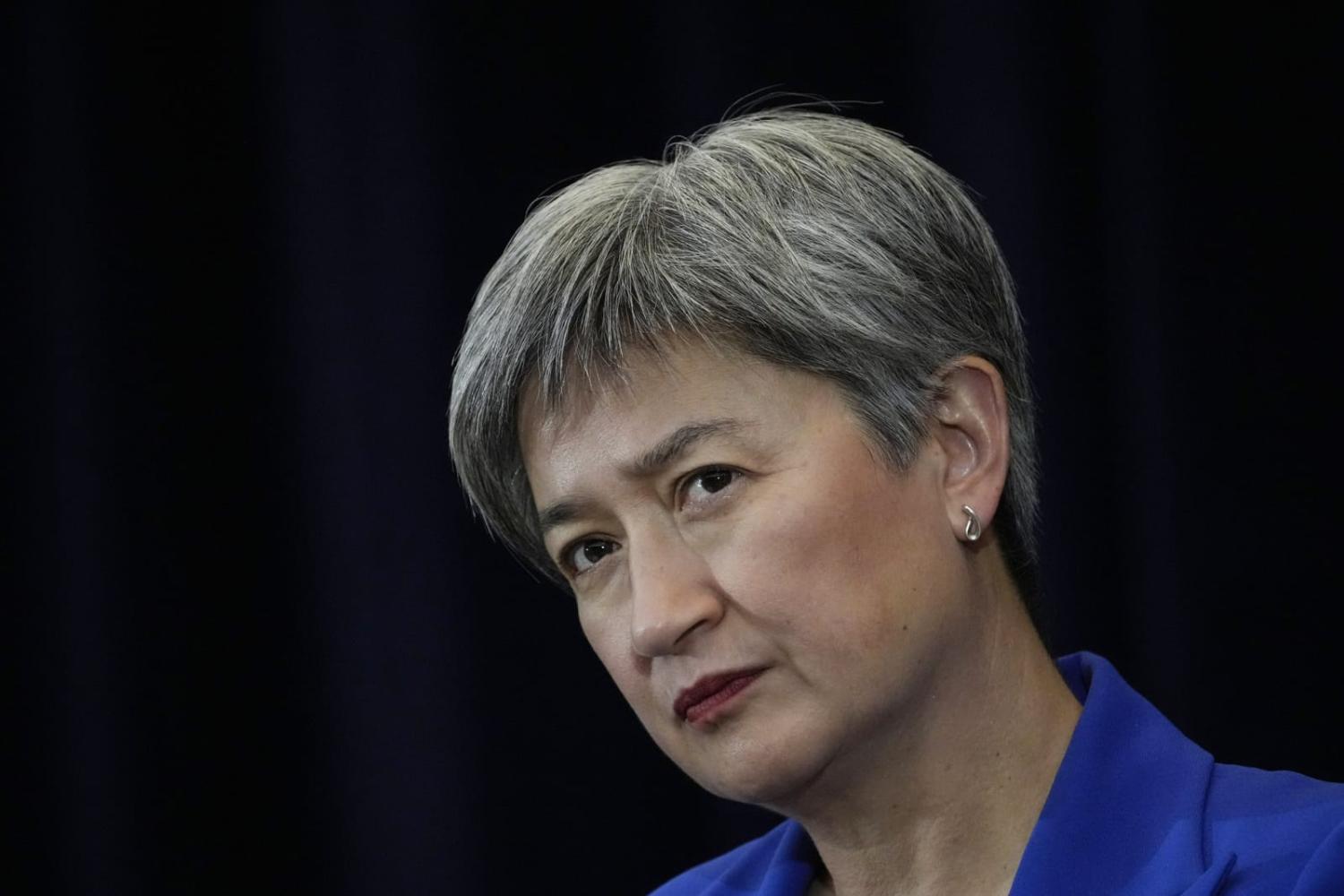In a speech to the Press Club in Canberra this week, Foreign Minister Penny Wong sketched a fine vision for the future of the Asian order. Wong seeks a region in which no one country dominates, in which every country has a say, and each can pursue its own interests and objectives free from coercion. The key to this order is what she called a “regional balance of power”. She accepts that China’s increased wealth and power will mean it has a bigger and more influential role than hitherto, but its power will, she hopes, be balanced by America’s in what she calls a “multipolar” order.
This implies, as Wong plainly acknowledged, a big change in the US role in Asia. America will remain “indispensable”, she said, “but the nature of that indispensability has changed”. She did not describe that change explicitly, but her meaning was unmistakable. Her vision is that America will no longer be the leading power in Asia. Instead, it will be one of a number of co-equal powers that will balance and constrain one another, in the interests of peace and stability. That is what “multipolar” means.
This week’s speech was not the first time Wong has spoken like this. She proposed a multipolar regional order in a major address in Jakarta in 2019. But, as I mentioned in an recent essay in The Monthly, since winning office Wong has been more circumspect about her views on Asia’s future and America’s role in it. It is good that she is willing once more to set out her views clearly.
The big question, though, is whether Washington agrees with her. Is this the way US policymakers see America’s future in Asia? This is important because Australia so strongly declares itself – most recently through AUKUS – to be fully committed to supporting US policy in Asia. It therefore matters a great deal whether America’s objectives in Asia align with the ones Wong has spelled out on behalf of the government.
All the evidence is that Americans do not. On the contrary, it is quite clear that the United States has no interest in joining China as a co-equal partner in a regional multipolar order. It seeks instead to perpetuate the role of Asia’s primary strategic power that it has enjoyed for so long.
How then can Wong’s advocacy of a multipolar regional order be reconciled with her government’s unconditional support for US policy in Asia?
The plain answer is that it cannot. Wong’s speech confirmed that there is a deep contradiction at the heart of the Albanese government’s foreign policy, between its vision for a multipolar Asian future and its complete alignment with US policies that are quite incompatible with that vision.
Perhaps it was to evade this awkwardness that Wong at the Press Club tried to caution us against “viewing the future of the region simply in terms of great powers competing for primacy”. That is frankly absurd, because the contest between America and China for primacy in Asia is precisely what is driving the fundamental changes in the regional order that she is addressing, and creating the risk of major war which she says we need to urgently to avert.
Wong conjured the former Australian external affairs minister Doc Evatt in her attempt to explain why we should not focus too much on these great power shenanigans. Evatt’s campaign in 1945 to stop the great powers dominating the United Nations, Wong suggested, vindicates her preference to focus instead on middle and small powers. But Evatt lost that battle, proving yet again that it is great powers that shape the international system – that is what makes them great powers – and lesser powers have most sway when they influence what the great powers do.
That means Australia’s best chance of shaping the new order in Asia is to influence America’s approach to it. But we cannot do that as long as our unconditional support for US policy sends the unmistakable message that we are perfectly happy as it is. Wong’s cautiously-phrased talk of multipolarity this week will be quite inaudible to American ears attuned to the AUKUS hoopla.

So, to influence America, Wong needs to speak in a straightforward fashion, and a lot louder. She needs to explain in words of one syllable that Australia’s objectives in Asia differ from America’s, and why, and urge America to change course and aim for outcomes that suit our interests. Of course, the pessimists will say that there is no point: how can we influence the United States on such a big question? But Wong keeps saying how important it is for us to take the big steps needed shape the world in our favour. That is the Evatt way, after all.
This would entail a big choice, though, and Wong doesn’t like choices. In her speech she castigated those “commentators and strategists” who advocate “simple, clear choices. Black and white.” She likes to evade these choices by walking both sides of the street – by murmuring about multipolarity, while supporting America’s dreams of unipolarity.
But hard times such as ours impose hard choices, and sometimes those choices are simple and clear. We need to stake out our position and say exactly where we stand, if we are to act effectively, or act at all. “To govern is to choose,” as the old saying goes.
It is important, though, to understand clearly what the choices we face really are. We do not – yet – have to choose between siding with America against China or with China against America, and it is a straw man to suggest this is the choice that I and others have been urging – as Wong like many others have tried to do.
The choice we have faced for years – and the choice Wong faces now – is between trying to persuade America to change its objectives by aiming for a balancing rather than leading role in Asia, or whether to keep on pledging our support to US policies whose aims she does not share. She likes to present her reluctance to make this big choice as prudent statecraft. History will judge it more harshly, as evasive timidity.

